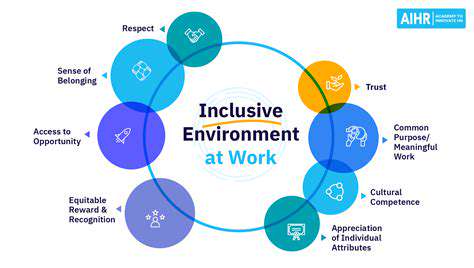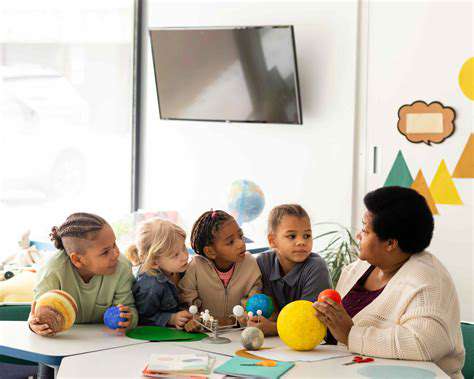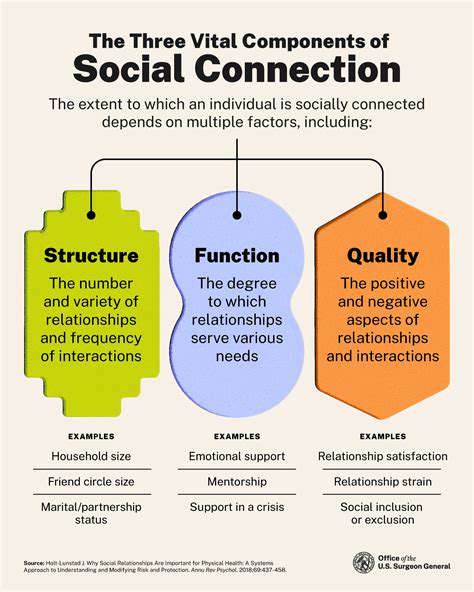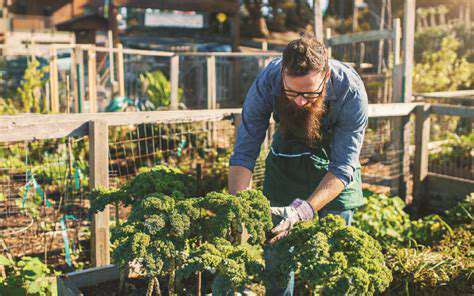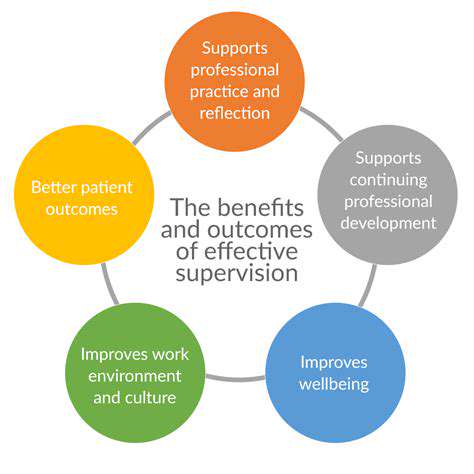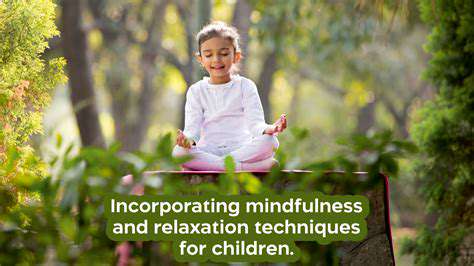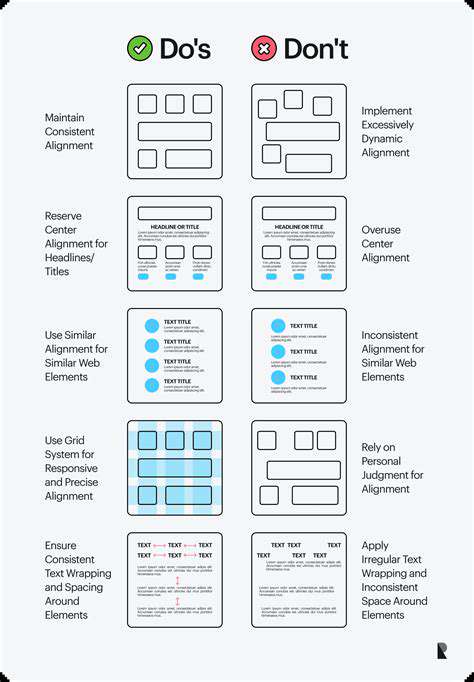The Mental Health Benefits of Gardening for Older Adults
Connecting with Nature's Rhythms
Gardening offers a profound connection to nature's rhythms, a tangible link to the cyclical processes of growth and decay. This engagement with the natural world, from the delicate unfolding of a seedling to the vibrant hues of a blossoming flower, can be deeply grounding and restorative. The rhythmic actions of planting, weeding, and harvesting, performed in harmony with the seasons, can bring a sense of purpose and calm to daily life, helping to counter the often frenetic pace of modern existence.
The act of tending to a garden, whether a small balcony box or a sprawling backyard plot, provides a tangible focus for attention, diverting thoughts away from anxieties and stressors. This mindful engagement with the soil and plants fosters a sense of presence and appreciation for the beauty in the everyday.
Cultivating Mindfulness and Focus
The process of gardening inherently encourages mindfulness. From carefully selecting seeds to meticulously nurturing seedlings, each task demands focus and attention to detail. This mindful engagement with the process can be a powerful antidote to racing thoughts and the constant barrage of stimuli in modern life.
The repetitive motions involved in gardening, such as transplanting seedlings or weeding, can create a meditative state. The rhythmic nature of these activities can help quiet the mind and promote a sense of calm and centeredness, fostering a deeper connection with oneself.
The Sensory Experience of Gardening
Gardening engages all the senses, creating a holistic sensory experience that can be profoundly soothing. The feel of the soil between your fingers, the scent of fresh-cut grass, the sight of vibrant blooms, and the sound of birdsong all contribute to a rich tapestry of sensory input. This multi-sensory engagement can be incredibly grounding, helping to reconnect with the present moment and reduce feelings of stress and anxiety.
The diverse range of textures, from the smooth petals of a flower to the rough bark of a tree, can be stimulating and enjoyable. The variety of colors and shapes in a garden can also be a source of aesthetic pleasure, adding a layer of beauty and wonder to the experience.
Stress Reduction Through Physical Activity
Gardening is a form of physical activity, offering a healthy way to combat stress and improve overall well-being. The physical exertion involved, whether it's digging, planting, or pruning, provides a welcome outlet for pent-up energy and tension. The act of working with your hands in the dirt can be incredibly therapeutic, fostering a sense of accomplishment and satisfaction.
Engaging in physical activity while surrounded by nature has numerous benefits for stress reduction. The fresh air, sunlight, and natural beauty of the garden can enhance the overall positive impact of the physical activity, promoting relaxation and a sense of peace.
Nourishment for the Body and Soul
Beyond the psychological benefits, gardening offers a connection to healthy eating habits. Growing your own fruits, vegetables, and herbs provides a direct link to fresh, wholesome food. This connection to the source of your nourishment can be empowering and contribute to a greater appreciation for the food we consume. The act of cultivating food also fosters a sense of responsibility and connection to the natural world.
The experience of nurturing plants and watching them flourish can have a profound impact on our emotional and mental well-being. Gardening provides a tangible way to connect with nature, cultivate mindfulness, and reduce stress – ultimately contributing to a healthier and more fulfilling life.
Social Connections and Community Through Shared Gardening Experiences
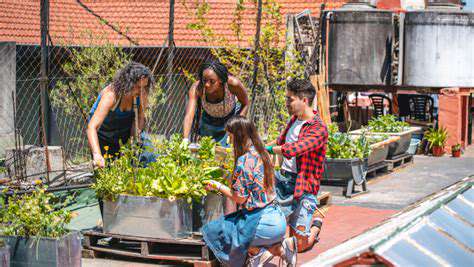
Strengthening Social Bonds
Social connections are crucial for overall well-being, fostering a sense of belonging and supporting mental health. Strong social bonds provide a network of support during challenging times, offering a listening ear, practical assistance, and emotional comfort. Developing and nurturing these connections is an investment in personal growth and resilience. Engaging in activities that bring people together, like volunteering, joining clubs, or attending community events, can significantly enhance social interactions and create meaningful relationships.
Building strong social connections takes time and effort, but the rewards are immeasurable. It involves actively listening to others, showing empathy, and expressing genuine interest in their lives. This reciprocal exchange builds trust and fosters deeper relationships, enriching our lives in countless ways. Investing in these connections, whether with family, friends, or community members, is a cornerstone of a fulfilling life.
Community Engagement and Impact
Active participation in community life extends beyond individual relationships. It involves contributing to the betterment of the surrounding environment and supporting local initiatives. This engagement can manifest in various ways, from volunteering at a local charity to advocating for policies that benefit the community. Engaging with the community fosters a sense of collective responsibility and shared purpose, ultimately improving the quality of life for everyone.
Community engagement is vital for creating a supportive and thriving environment. Participating in local organizations and initiatives can lead to tangible improvements in the community, addressing specific needs and fostering a stronger sense of collective identity. From addressing environmental concerns to supporting local businesses, community engagement empowers individuals to make a positive difference and contribute to a more vibrant and inclusive society.
Contributing to local initiatives, whether through volunteering, fundraising, or advocacy, is a powerful way to cultivate a stronger and more engaged community. This collaborative effort enhances the overall well-being and quality of life for all members of the community, creating a more harmonious and supportive environment for everyone.
Supporting local businesses and entrepreneurs is another crucial aspect of community engagement. By patronizing locally owned establishments, individuals contribute to the economic vitality of the area and create job opportunities. This support fosters a sense of community pride and strengthens the local economy.
Participating in local events and festivals also enhances community spirit. These gatherings provide opportunities for people to connect, celebrate shared interests, and build stronger relationships.
Finding Fulfillment and Purpose Through the Art of Gardening

Unveiling the Essence of Fulfillment
The quest for fulfillment is a deeply personal journey, often intertwined with our understanding of purpose. It's not a destination, but a continuous process of self-discovery and growth. Exploring our values, passions, and talents is crucial in this endeavor. Identifying activities that resonate with our inner compass is often a significant step towards finding a sense of accomplishment and satisfaction in our daily lives.
This journey frequently involves confronting our fears and stepping outside our comfort zones. Embarking on new experiences, whether it's learning a new skill, pursuing a creative outlet, or contributing to a cause we believe in, can be transformative in unveiling our potential and leading to a more fulfilling existence. Understanding our personal values is essential in this process and can guide us toward activities that align with our core beliefs.
The Role of Purpose in a Fulfilling Life
Purpose is often described as a driving force that motivates us to strive for something beyond ourselves. It's a sense of meaning and direction that gives our lives depth and significance. Finding a purpose often involves connecting our talents and passions with a need in the world, whether it's through our careers, volunteer work, or personal projects.
A strong sense of purpose can provide a framework for making meaningful choices and pursuing goals that align with our values. It fosters resilience in the face of challenges and provides a foundation for a more meaningful and purposeful existence. Ultimately, it allows us to feel connected to something larger than ourselves, which can lead to a greater sense of fulfillment.
Finding a meaningful purpose can be a life-long exploration. It's not something that is readily apparent, but rather something that we uncover and cultivate through reflection, experience, and introspection. It is not a fixed point, but rather a dynamic process that evolves over time.
Cultivating a Mindset of Growth and Resilience
Cultivating a growth mindset is essential for navigating the path to fulfillment and purpose. It involves embracing challenges, viewing setbacks as opportunities for learning, and persisting in the face of adversity. This mindset is crucial for personal growth and allows us to adapt to changing circumstances and embrace new possibilities.
Developing resilience is equally important. It equips us with the strength to overcome obstacles and bounce back from disappointments. This often involves building strong support networks, practicing self-care, and cultivating positive coping mechanisms. Resilience allows us to face life's inevitable challenges with fortitude and a renewed sense of hope.
Embracing a mindset of continuous learning and growth is key to a fulfilling journey. It's about embracing change, adapting to new situations, and continually seeking opportunities to expand our knowledge and skills. This process leads to a greater understanding of ourselves and the world around us, enriching our lives and deepening our connection to purpose.
A commitment to personal well-being, both physically and emotionally, is vital for maintaining momentum on this journey. Prioritizing self-care, nurturing healthy relationships, and practicing mindfulness are integral components of a fulfilling life. By addressing our physical and emotional needs, we create a foundation for sustained growth and resilience.
